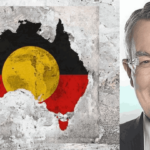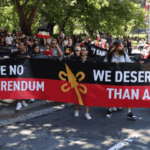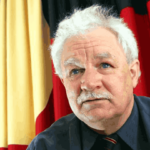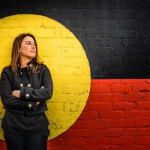Thorpe on the Shadow of Paternalism Alice Casts on the Voice
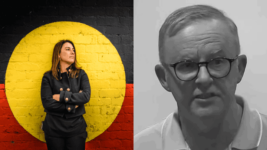
After coming on strong with talk of the referendum on the Indigenous voice to parliament as a means of empowering First Nations, the Albanese government, in its burgeoning approach to Alice Springs, is veering towards the paternalism and punitiveness of the Northern Territory Intervention.
Fuelled by proven false claims of rampant child abuse, the Howard government, in June 2007, launched the NT Intervention, deploying ADF troops to 73 remote Aboriginal communities. And this was followed by the expansion and militarisation of police and 15 years of now-expired alcohol bans.
Enter the 2023 Alice Springs First Nations youth crime wave, which would not be the first youth crime wave of colour later shown to be the result of a media beat-up.
In response to this crisis, the prime minister was in the NT town last week to formulate a solution, which was to beef up the police and reimpose alcohol bans. And indeed, the mayor of Alice Springs has even been calling for the army to be sent in.
Anthony Albanese’s approach to Alice is a far cry from the sentiment he evoked during his Garma speech on the Voice to Parliament, which he gave in Arnhem Land last July. The PM’s words then spoke of a way forward that trusts in “the value of self-determination and empowerment”.
But according to Greens Senator Lidia Thorpe, in denying First Nations basic human rights, including that of self-determination, the settler colonial system is producing the disparities that propagate crime, and Albanese’s interventionist response disregards a loud Indigenous voice of opposition to it.
A rights-based approach
“What’s happening in Alice Springs is entirely predictable and preventable,” Thorpe makes clear. “Around 40 percent of the recommendations from the Royal Commission into Aboriginal Deaths in Custody are around social factors: things like housing, employment, education and healthcare.”
“This is because access to basic human rights prevents crime from happening in the first place,” she told Sydney Criminal Lawyers.
Thorpe has been at great pains to get First Peoples rights on the agenda and enshrined into law. Her United Nations Declaration on the Rights of Indigenous Peoples Bill 2022, which she’s described as a “First Nations Bill of Rights”, does exactly this.
The Gunnai Gunditjmara and Djab Wurrung woman further explains that the Voice runs contrary to this aim as it won’t result in solid rights protections, rather select First Nations representatives will provide advice on Indigenous affairs to government, leaving it to decide on whether to act.
And as Thorpe highlights, this is exactly the same scenario with the royal commission, as despite a comprehensive blueprint of 339 recommendations being delivered in 1991, numerous Australian governments have chosen to ignore them, and these deaths are now at an all-time high.
“If the recommendations were implemented, we would see justice for all families which will ultimately keep people out of the so-called justice system,” the senator underscored.
“We’ve got coroners calling for this. We’ve got Elders calling for this. The problem is not our voice, it’s the government’s ability to listen.”
Rights-denied
Thorpe has spoken to Que Kenny and Jasmyn Sheppard, members of the Blak Greens from the red desert, who’ve reached out to her to explain that the youths around Alice who’ve become a focus of the media, are reacting to the extreme racism of the system that sees their parent’s rights denied.
And while this denial of rights has been key to the colonial project, the just-expired Intervention marked an escalation in this regard, and it further reversed social outcomes in communities where it was implemented, including the replacing of community-based employment with work-for-the-dole.
“Before the Intervention, you could pay people in your own community to make housing repairs,” said Thorpe. “Now, people are living in inhumane conditions while they wait for contractors to come out from the city.”
“One person in a community near Alice Springs lived with a blocked toilet and leaking shower for 269 days.”
And in many ways, successive Australian governments have treated Aboriginal communities in the Northern Territory in a similar manner to the way ADF troops had been engaging with local communities during the wars in Iraq and Afghanistan.
The escalation in policing that Albanese has been spruiking is a key feature of interventionist policy, which involves officers with military-style weapons patrolling unarmed and occupied people, and it’s what the ongoing Police Guns Out of Remote Communities campaign is all about.
Five weeks after the Morrison government was voted out last year and Albanese took office, the main laws governing the Intervention, then contained in the Labor-drafted Stronger Futures in the Northern Territory Act 2012 (Cth), expired.
And just like in the Middle Eastern theatres of war, when it was time to end, the Australian government simply let the settings of the previous decade and a half drop, without any measures to ensure a smooth transition, which some now posit has led to the crisis in Alice.
Treaty before Voice
The Albanese government plans on holding a referendum on the Voice later this year. Thorpe has always opposed it, claiming it will undermine First Nations sovereignty, since it was revealed at a 2017 Referendum Council conference, and she has campaigned for the establishment of treaties instead.
Without any veto powers, the Voice, an Indigenous body charged with advising parliament, will place First Nations in the subservient position of appealing to the Australian government on policy matters, whereas a treaty is an agreement on land and water rights between two sovereign entities.
The so-called First Nations youth crime wave in Alice is not the first example of the mainstream narrative blaming the sins of society on youths of colour. The recent African gang crisis in Melbourne is another example, as were 1990s concerns around Vietnamese crime and Lebanese gangs.
And similar to the 2007 Intervention, which was preceded by a later-proven-false ABC Lateline report asserting paedophile rings were rife in NT Aboriginal communities, an Alice Springs nurse, well-versed in the school of Kerrie-Anne Kennerley, has started propagating such rumours again.
Paternalistic posturing
“Kids are reacting to seeing their families and communities being mistreated,” Thorpe continued. “NT Labor has been in government since 2016, where is the capacity building in our communities? This is discrimination. This is a breach of human rights. It’s genocide.”
Federal Labor’s response to Alice has been spurred by the right wing commentary coming from Liberal Nationals figures like Peter Dutton and Barnaby Joyce, and it’s that side of politics that heightens the likelihood that positive outcomes from an Indigenous voice wouldn’t be forthcoming.
The paternalism inherent in the Voice, which would see First Nations people asking parliament to engage in the generosity it’s denied since its inception, has already been apparent in the approach taken by government and the media to last week’s Invasion Day protests.
At the rallies in urban centres across the continent, crowds heard from numerous commentators who spoke in a united way against the Voice proposal in favour of treaty-making, however much of the reporting on the events simply censored this, focusing instead on the change the date debate.
“Invasion Day is the only opportunity so many grassroots Blakfullas have to be heard,” Thorpe countered. “People need to be careful of disrespecting all of our old people and activists, like the late Aunty Rosalie Kunoth-Monks and Tauto Sansbury.”
“Undermining their voices is an absolute insult to our intelligence, our integrity and the resistance movement that started in 1788,” she ended.


